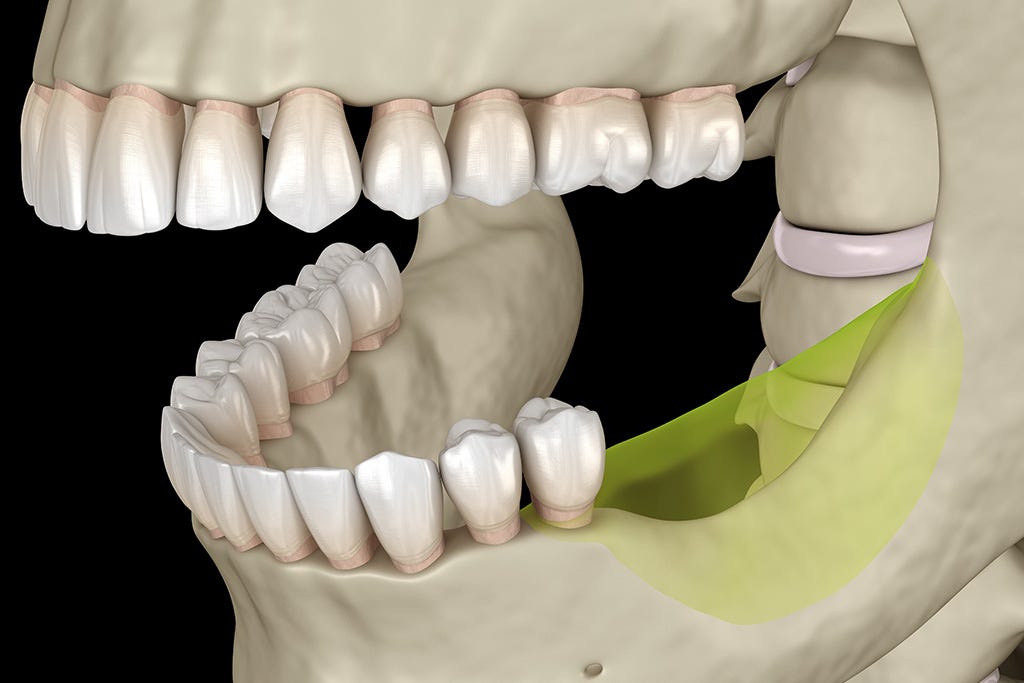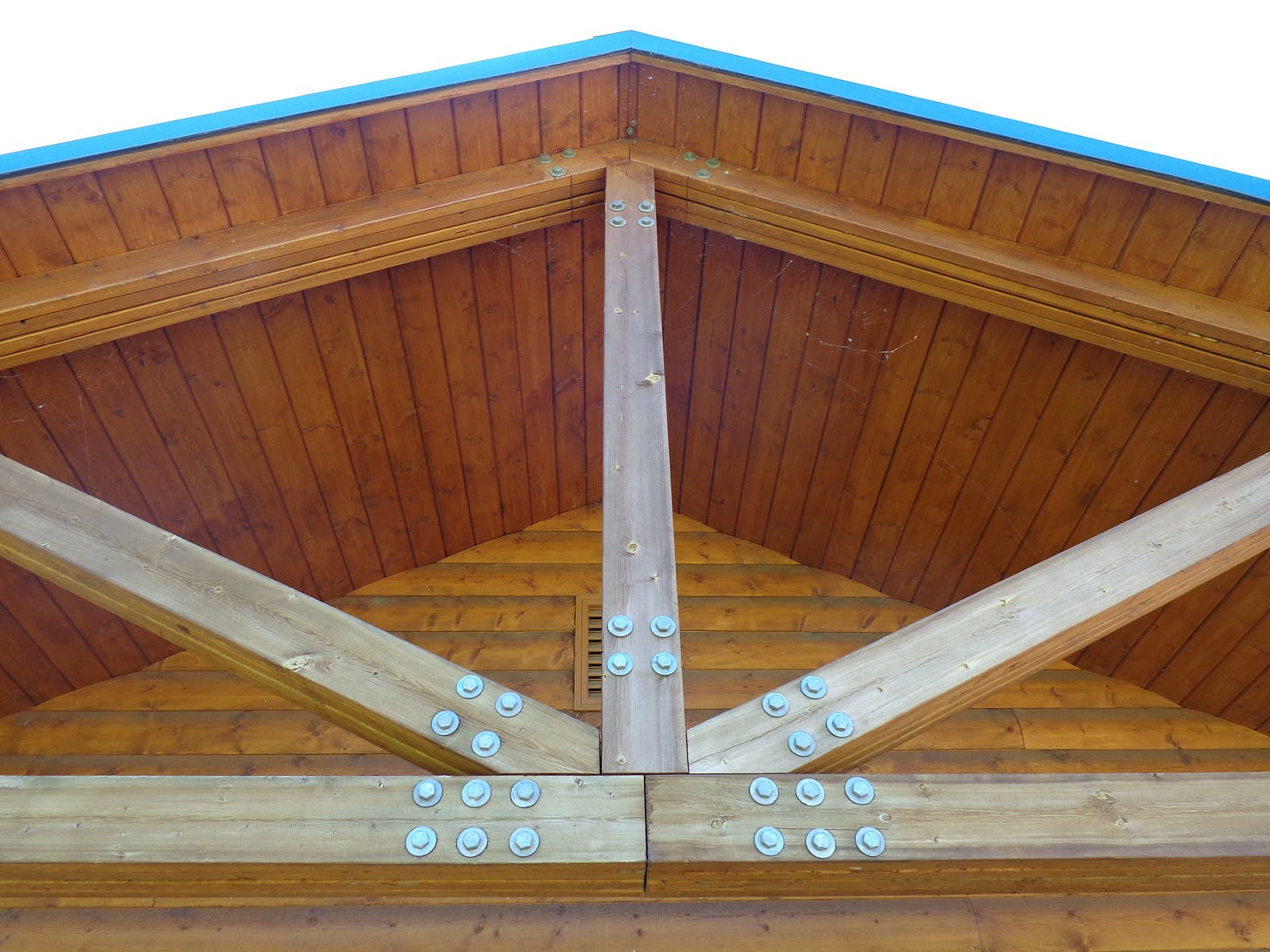Does a flat mouthguard work if you have missing teeth? Or an implant?
Yes because this process works via the soft tissue and not the teeth.
Youtube
This is a question I get all of the time and so I figured it’s high time i wrote a post with my thoughts on it.
Folks ask if Reviv works ok if they are missing teeth.
Some ask if they should put an implant in before starting the process.
And others recently put implant(s) and ask if it will impact the process at all.
A refresher on how this process works
Let’s start with a refresher on how this process works.
Think of a the soft tissue (fascia, skin, etc) that covers your jaw and skull like a balloon.
By wearing a mouthguard it kind of has the physics of a door stop by preventing the jaw from fully closing. As a result the soft tissue covering your skull needs to stretch, and this has the effect of ‘inflating’ the skull.
As the skull inflates the cranial bones and your jaw move to a better position.
As the bones move so do the teeth attached to them. And so the arches widen and teeth upright and untwist.
The whole process works via the soft tissue and NOT by putting direct force on teeth as orthodontists like to do.
The mouthguard acts like a support beam
Since the process works by soft tissue it is not dependent on teeth to work. And so it works even if you’re missing some teeth.
It also works if you have an implant.
You see without the mouthguard if you were to remove a tooth then the rest of the teeth would begin to migrate a bit as things collapse inwards. And curve of spee would tend to flatten a bit as the entire skull deflates due to the loss of ‘vertical’ in your mouth (because of flattening of curve of spee).
Cranial bones would derange and the brain would be crushed a bit.
But if you are wearing a mouthguard it prevents this from happening. In a similar way to how a support beam prevents a business a roof from collapsing.
It’s essentially putting the opposite effect on the soft tissue… it is stretching the soft tissue and inflating the skull.
Which is why if you ever have a tooth removed you should be wearing a mouthguard afterwards. To prevent the collapse that tends to happen afterwards.
What happens when teeth are missing?
The process is exactly the same when teeth are missing because the bones move regardless of the teeth.
However the skull will move the teeth to where it wants, which in my view ends up looking relatively ‘natural’ and aesthetic.
But if you had teeth removed, then as you expand things outwards you will of course have some gaps.
You can, if you want, fill these gaps with implants to be more aesthetically pleasing. Just make sure that you do not try to lock an occlusion for the reasons I stated here:
I generally recommend not putting any implants until you’re near the end of your process. Because lots of things are still evolving… your arches are widening, curve of spee changing, teeth are untwisting and uprighting, etc.
So you don’t really know the correct height and placement of the implant till you are at the end of the process.
And even then.. you do not HAVE to get an implant. It will be perfectly fine to just leave the gap IF you continue to wear a mouthguard to sleep at night.
Or if you get flat composite as i talk about here.
What happens if you have implants already?
Some folks already have implants when starting and so their natural concern is… does this impact the process?
My view on this is that they just ‘go along for the ride’. And are not a big hindrance.
But as i’ve never had implants myself… i’m waiting for more data from our community around this. I do know that many folks using Reviv now have implants… and to my knowledge it is not posing any issues.
Do note that the implant may look a bit off by the time you are done with Reviv. Because the rest of your mouth will have changed a lot. Your teeth may now be at a higher height and therefore your implant may look short, etc.
For the most part, however, I think these will just be aesthetic impacts and not functional ones.
Closing thoughts
Today i’m trying to drive home the point that this process works pretty much the same (in my view) whether you are missing some teeth or not.
I am not even sure that people that have all of their teeth have any advantage. Though they will probably have collapsed a bit less.
As you do this biomechanical process, the soft tissue will inflate the skull like a balloon, the cranial bones and jaw will move into better positions, and this will move the teeth.
The teeth just go along for the ride and more space will likely be opened up if you had extractions.
These spaces should look relatively normal and you may want to put an implant in at the end of the journey.
That’s how i see it! But we’ll know more as we collect more data from our Reviv community as time goes on.










thanks for all this. i am so wary of dentistry lately. am gonna try your reviv soon as well. wondering if you will write about bone loss in the jaw and how reviv could or could not help or any other thoughts you
might have on the subject.
How does this work, if you have had all teeth removed, wear upper dentures and have lower jaw implants holding a fixed denture in place? Can the appliance be used without upper dentures in place, like overnight?